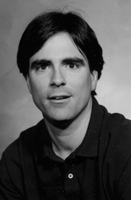 Using Time to the Fullest
Using Time to the Fullest  Using Time to the Fullest
Using Time to the Fullest Between the responsibilities that come with being a veterinarian, the demands of family life and other outside commitments, it never seems like there’s enough time in the day to get everything done. Juggling all these duties is not so much a matter of finding more time in the day (after all, there will never be more than 24 hours) but managing the time you do have wisely.
Making the most of your time was a topic Dr. Randy Pausch was intimately familiar with. A professor at Carnegie–Melon University, Pausch was diagnosed with pancreatic cancer in September 2006. The disease progressed rapidly, and by late 2007, Pausch was told he had three to six months to live. Despite his advancing illness, Pausch maintained a positive attitude and didn’t slow down – he testified before Congress about the need for more funding for pancreatic cancer research, delivered a lecture on “Really Achieving Your Childhood Dreams” at Carnegie–Melon and even co–authored a book, “The Last Lecture.” One of Pausch’s most well–known lectures, though, was a presentation on time management, a version of which he delivered to more than 900 people at the University of Virginia in November 2007.
For Pausch, that old saying about time being money is true — managing your time wisely is the only way to get the most out of it. Bad time management leads to stress, which in turn leads to more wasted time, according to Pausch.
Taking small steps like maintaining a clutter–free desk and making a daily to–do list can lead to big gains in time for more important things, according to Pausch. A lot of time is wasted simply by pawing through the clutter on a messy desk or failing to prioritize tasks, responsibilities and other duties. Pausch’s advice: plan each day, each week, and each month. Failing to plan is planning to fail and you can always change your plan–but you need to come up with one first.
Staying constantly connected through cell phones and email might seem like a good way to save time, but all those interruptions can actually cause you to waste more time. Whatever you’re working on, it takes about 4 to 5 minutes to recover from every interruption and get back to work — which means four or five interruptions can knock a full half–hour out of your day. Pausch recommends keeping phone calls short and focused. Make sure that each call you make has a clearly defined goal and don’t let what should be a 15–minute business call turn into a 45–minute rambling conversation. If you keep an email program open on your computer desktop, turn off the mail notification feature — every new message that pops up in your inbox will only distract you from the task you’re working on.
One of the most useful time management tools is a time journal. Keep track of your time in 15 minute increments for anywhere between three days and two weeks. Update the journal every half hour. A time journal can help you figure out what doesn’t need to be done, what others can do for you and what tasks you can do more efficiently. Figure out the time of day when you’re most creative and do you best work. For most people, this is usually first thing in the morning. Defend that time ruthlessly and use it to your best advantage.
Pausch’s other practical tip: don’t get bogged down in meetings. When it’s time for a meeting, lock the door, unplug the phone and get down to business using a clearly defined agenda. Meetings should last no more than an hour and minutes should be clear and concise — keep track of who is responsible for what by when.
Above all, Pausch recommends keeping things simple. Ditch your television (the average person watches 28 hours of TV each week!), make time for your family and eat right, sleep well and exercise.
Pausch lost his battle with pancreatic cancer on July 25, 2008, almost a year after doctors told him he had only three–to–six months to live. His lecture on time management and his acclaimed “last lecture” on achieving childhood dreams are available at
www.randypausch.com